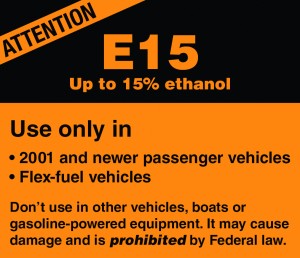12 item(s) were returned.
Hydrogen’s potential as an emission-free fuel for transportation, power generation, and industrial purposes is nothing new; however, interest in the technology has increased in recent years. Some energy professionals say hydrogen will finally have its moment, driven by the trend towards cleaner hydrogen production, the need for additional tools to address climate challenges, and hydrogen’s potential in hard-to-decarbonize sectors. On March 24, OurEnergyPolicy hosted a panel discussion examining the role of hydrogen in the energy sector. The webinar covered the production and uses of hydrogen, current economics, and policies needed to support the continued growth of the industry. In discussing… [more]
View InsightThe transportation sector is responsible for almost a third of the United States’ greenhouse gas emissions, more than any other sector. Between 1990 and 2017, emissions from transportation increased more than any other sector in absolute terms, underscoring the importance of addressing sector emissions to help meet climate change goals. There are more reasons to reassess how we power transportation beyond just reducing emissions. As explained in our recent webinar series, some experts say that diversifying our choice of fuels could help support the American economy and potentially free us from dependence on foreign oil. The global market for alternative fuels is currently growing at a compound annual rate of 13.1% and is expected to… [more]
View InsightCGO Graduate Research Fellow
The Center for Growth and Opportunity - Utah State University
Following the boom in oil production from the hydraulic fracturing revolution, environmental protection outstripped energy independence as the major selling point of US biofuels policy. The ethanol mandate continues to grow and includes 15 billion gallons that can be met using ethanol made from corn. All of that corn ethanol, despite being a renewable fuel resource, does not deliver the environmental benefits hoped for by early biofuel advocates. The production of billions of gallons of ethanol requires vast expanses of farmland, and with the introduction of the ethanol mandate, these areas have grown to encompass what were previously unimproved critical… [more]
View InsightEditor
Bloomberg's First Word Energy
Over the course of his first weeks in office, President Trump has outlined an America-first energy policy that appears to mean essentially one thing: More U.S. oil production. His policies are decidedly aimed at boosting oil production: green-lighting more drilling on federal lands, building more oil pipelines, and rolling back rules that harm the oil industry. But America First doesn’t necessarily mean a focus on American oil. From a different perspective, the Fuel Freedom Foundation aims to boost the American economy and cut its dependence on OPEC by expanding the fuels available for automobiles. Fuel Freedom, argues for “ending our… [more]
View InsightCo-Founder
Fuel Freedom Foundation
The lack of alternative energy sources to fuel our vehicles and replace expensive oil, jeopardizes U.S. national security, forces Americans to pay more at the pump, and greatly represses our ability to reduce pollution and address climate change concerns. In my state of California, 74% of all emissions – including CO2, toxic pollutants, ozone forming emissions and more – come from petroleum. Oil accounts for 65% of California’s GHG emissions, compared to 33% from natural gas, and less than 2% from coal. Meanwhile, each year, the U.S. spends more than $600 billion to buy oil and oil products, which is… [more]
View InsightVice President for Policy Strategy
American Gas Association
There is currently no national standard for dispensing liquefied natural gas (LNG) as a motor fuel. In July, the National Conference of Weights and Measures (NCWM) will consider requiring retail natural gas dispensers to use kilograms as the primary unit of sale for liquefied natural gas (LNG). The same regulators and officials advocating for that approach are encouraging that CNG no longer be sold in gasoline gallon equivalents as well. This would be a drastic departure from the current practice of using diesel gallon equivalents (DGE) for the sale of LNG, since it primarily competes with diesel fuel for trucking.… [more]
View InsightDirector, Energy Project
Bipartisan Policy Center
The Bipartisan Policy Center’s (BPC) Energy Project seeks your input as part of a yearlong effort aimed at fostering constructive dialogue and action on reforming the Renewable Fuel Standard (RFS). BPC commissioned a series of background papers on various RFS topics. The last three papers, summarized below, approach the RFS from the perspectives of policy and law, considering both the Environmental Protection Agency’s authority as well as broader federal regulations. Inventory of Federal Regulations Affecting Biofuels other than the Renewable Fuel Standard [Read here] Van Ness Feldman “Although the RFS has been the key driver in the production and use… [more]
View InsightAdvisor
Fuel Freedom Foundation
Last week, the Tesla Model S, an electric-powered car, received the National Highway Traffic Safety Administration’s highest mark in its history of ranking cars. Consumers Reports granted the Tesla Model S ninety-nine out of 100 points in their overall measure of vehicles and Motor Trend magazine named the Model S the 2013 Car of the Year. While Tesla’s increasing appeal may lead the way toward increasing market penetration for electric vehicles (EVs) in the future, real competition, at the present time and for some time to come, will depend upon opening up the present-restrictive gasoline market to alternative fuels, like… [more]
View InsightThe Renewable Fuel Standard (RFS), which was recently amended to address numerous criticisms, is again under fire, this time for its potential effect on food prices. The RFS program requires an increasing volume of renewable fuel to be blended into transportation fuel each year and since its implementation in 2005, the US has become the world’s largest producer of ethanol fuel, a corn-based renewable fuel. Yet many RFS critics argue that the mandate is responsible for driving up food prices. The authors of this UC Davis study concluded that “Corn prices were about 30 percent greater between 2006 and 2011… [more]
View InsightThe U.S. EPA finalized amendments to the Renewable Fuel Standard (RFS) program that include new renewable fuel production pathways for renewable diesel, renewable naphtha, and renewable electricity (used in electric vehicles) from landfill biogas. According to the EPA, “Adding these new pathways will enhance the ability of the biofuels industry to supply advanced biofuels, including cellulosic biofuels, which greatly reduce the greenhouse gas emissions (GHG) compared to the petroleum-based fuels they replace.” However, these changes don’t address some of the fundamental problems associated with the RFS, according to critics. For example, NACS, the international trade association that serves the convenience… [more]
View Insight








